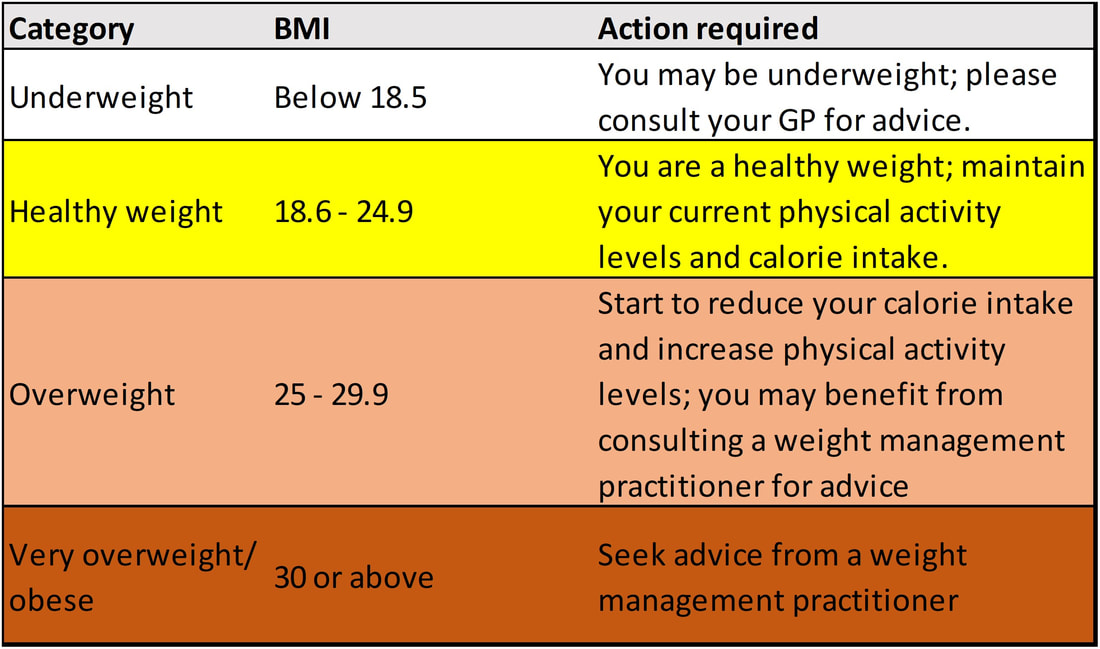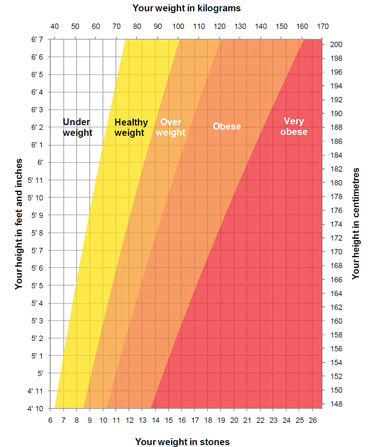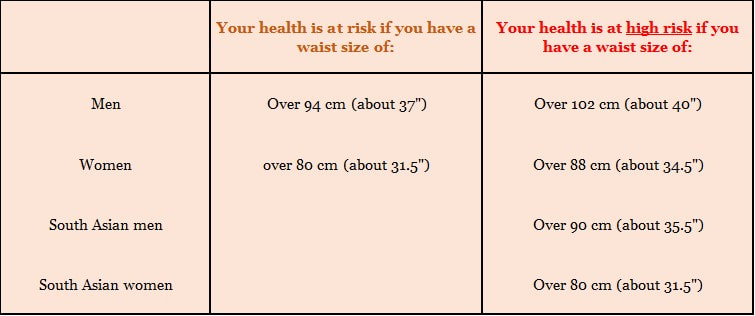Whilst weight management can be a challenge for everyone - not just those of us with MS - but adding some of our 'unique' challenges into the mix can make it seem double difficult to manage and all the more frustrating.
- Coronary heart disease (CHD)
- Type 2 diabetes (T2DM)
- Obesity
- Osteoporosis
- Hypertension
- High cholesterol
- Depression & anxiety
Poor nutrition and associated impact on weight can exacerbate conditions including:
- Asthma
- Arthritis
- Menstrual irregularities
- Infertility
- Eczema
and increase the risk of cardiac events including:
- Stroke
- Heart attack
On a basic level maintaining a consistently healthy weight generally means that we are consuming enough energy to support our essential bodily processes. There is a distinction here between 'energy' and 'nutrition'; being a healthy weight does not necessarily mean that we are consuming an adequate level and balance of essential nutrients, just that we are eating enough volume (ie energy) to function.
But what happens if we aren't?
1. Weight gain in MS
Weight gain in MS is common with the MS Trust reporting that over 50% of sufferers are overweight. This is unsurprising given the nature of the disease and its effect on symptoms including pain, energy levels, fatigue and balance affecting the ability to exercise; comfort while moving around and general mobility challenges meaning that exercise isn't possible nor comfortable. Symptoms of depression and anxiety can mean that you might not feel confident enough to exercise and you might feel better staying in the house...which can lead to comfort eating in a bid to make yourself feel better. All these points can mean that regardless of exercise you may not be 'out and about' as much as you were.
If you have greater mobility challenges and spend part of your day in a wheelchair you may feel you are facing a greater challenge to maintain a healthy weight; remember that weight-loss isn't all down to exercise (although this is an important element) there is much you can do to reduce your weight through balancing your intake according to activity levels; choosing high-fibre foods which will fill you up and making healthy choices (eg apple or few nuts) when snacking. Following on from last week's blog too there are many ways you can exercise whilst in a wheelchair.
Treatment choice may play a role here too; although rarely listed in manufacturer literature there are many threads on forums such as Shift.ms for example where members post queries around weight gain through taking a particular Disease Modifying Therapy (DMT). Weight-gain is an unfortunate 'known effect' however in taking prescribed steroid treatments to reduce inflammation during a relapse.
What can I do about it?Unfortunately this isn't the correct forum for me to give out specific weight-loss plans - that is the role of a dietitian and needs specific one-to-one advice or as part of a weight-management group - I'm sorry if that was what you were expecting from this blog. If you are concerned about your weight; as ever please consult your MS nurse or GP, they will be able to give you some advice and sign-post you to a relevant group or refer you to a dietitian; weight loss if far more than just monitoring what you eat and involves bench-marking where you are; working out what you want to achieve (making sure that it is realistic and achievable) and helping you to set realistic short and longer term goals. In a nutshell - much more than can be done in a single, public blog post.
The first cautionary note
As ever, there is a cautionary word that goes with this... In the same vein as my (often laboured) advice about not following 'YouTube celeb's' workout videos (remember my expensive Physio costs that I mentioned last week as a result of pre-PT qualification video-following?) the same is true - if not more so - of following celebrity diet advice, that often promise you a dramatic weight loss in a short amount of time. Diet advice is big-business at the moment with everyone from PTs (who incidentally aren't qualified to prescribe anything more than generic dietary advice) to models trying to cash in on the public desperation to lose weight. You may have seen the hashtag on social media and I definitely use it: #trustadietitian. Always consult an expert.
2. Weight loss in MS
Weight loss can also happen in MS with symptoms such as tremor, problems with posture or problems with swallowing (dysphagia) making the physical act of eating difficult. Fatigue relating to selecting, shopping for and preparing food, symptoms of anxiety, depression and challenges with cognitive functioning can all make eating difficult or cause you to lose your appetite. Similarly some DMTs can have the same effect, all making you likely to lose weight. .
Why is weight loss a problem?
Given our culture of 'celebrity' and focus on slim physique (although it seems to be shifting towards a more 'fitness-based' culture) you could be forgiven for wondering that the bother with weight loss is...
Malnutrition.
If you are unable to consume an adequate intake of energy (and essential nutrients) to maintain normal functioning of your bodies' systems you will become malnourished. This is a problem in terms of symptoms including fatigue and depression, but can have wider challenges such as health of the digestive system; reduced immunity to other conditions; reduced mental functioning and can lead to muscle wastage (remember the resistance-training blog where I said we must 'use it or lose it' in relation to maintaining muscle strength?).
It can be difficult to notice the symptoms of malnutrition as early signs include muscle-weakness and fatigue - both symptoms of MS in themselves so may go unnoticed.
What can I do about it?
If you are struggling with eating or preparing meals please speak to your GP or MS nurse who can refer you to a dietitian; weight-gain is not as simple as just 'eating more' and the problems behind why you may have lost weight such as those mentioned above, can be treated successfully by your medical team. If you are struggling with loss of appetite it may be suggested that you exercise to stimulate your appetite; this will need to be referred specifically to a PT to provide you with a plan to make sure you don't lose weight. The PT will focus on building up your lean muscle which will help to stimulate your appetite.
- improve mobility
- improve fatigue in both under- and overweight
- provide enough energy to deal with the general challenges that MS presents and give the body reserves to help manage these stresses
- make drawing blood for testing easier: if you are underweight your veins can shrink closer into your bones to prevent the body losing heat; if you are overweight it can prove more difficult to find a good vein to draw blood: it's a similar situation for treatment infusions
- help to prevent pressure sores if you are in a wheelchair or bed for much of the day
BMI can be assessed using this chart and is calculated by:
1) Measuring your height in metres and weight in kilograms (both without shoes)
2) Multiply the figure for height by itself
3) Divide your weight in kilograms by the answer noted in the previous step.
Limitations of the BMI model
Classifying weight into a category according to BMI is a useful guide, however does have limitations:
- It is suitable for Adults over the age of 18; it is not suitable for use with children
- It does not apply to pregnant women
- It is not suitable for use with athletes or the very athletic
2. Waist circumference (WC)
Your shape - indicative of where you carry excess weight - can also indicate your health risk. Carrying excess weight around the middle can increase the risk of developing coronary heart disease, high blood pressure and diabetes.
You can easily assess whether your shape is putting you at increased risk by measuring the circumference of your waist by following the handy tips from the British Heart Foundation below.
At present guidelines exist for people of European and Asian ethnicities while data for other ethnic groups is not available; if you are not of Asian background current recommendations indicate that you should follow guidelines for European men and women. Separate guidelines exist as data shows that individuals of Asian ethnicity are more likely to have a higher proportion of body fat to muscle compared to the rest of the population. People of Asian background tend to carry this fat around their middle meaning that they are at greater risk of developing problems including diabetes and coronary heart disease at a lower waist size than Europeans.
However, no matter what your ethnic background it is important to remember that the measurements below are a guide. If you are unsure please consult your doctor who will be able to make an individual assessment of your overall health risk based on your individual risk factors.
(Bear with me, I'm not teaching you to suck eggs here; there are some useful notes...)
1. Find the point halfway between the bottom of your ribs and top of your hips; this will probably be in line with your tummy button or slightly higher. Measure yourself around the middle point. Remember to start at the lowest end of the tape measure and try to relax and not breathe in!
2. Check your measurement on the chart below; it is recommended that men use the metric measures (cm) while women use imperial measures (inches).
And finally...!
To reiterate for a final time (this blog is getting a bit long, apologies) please consult your GP or MS nurse if you have concerns about your weight; as I said earlier - it's not as simple as just eating a bit more or less, there could be other underlying conditions responsible for weight loss/gain.
As always, the last word from me...Do let me know if you have found this post helpful; use the icons below to send me an email; join me on Twitter or send me a message through the contact page on the website, I'd love to know what you think.
Active IQ (2016) ‘Section 7: the importance of healthy eating’ in Fitness instructing (gym). Active IQ Ltd: London
British Heart Foundation (2011) ‘Session 13 sheet: waist measurement instructions’. Available online at: https://www.bhf.org.uk/heart-health/preventing-heart-disease/managing-your-weight
British Nutrition Foundation (2016) ‘Healthy weight loss’: Available online at: https://www.nutrition.org.uk/healthyliving/healthissue/healthy-weight-loss.html
MS Society (2017) ‘Managing your weight’. Available online at: https://www.mssociety.org.uk/managing-your-weight
MS Trust (2016) A_Z of MS; ‘Managing weight’. Available online at: https://www.mstrust.org.uk/a-z/diet#weight
NHS Choices (2015) ‘height/weight chart’. Available online at: http://www.nhs.uk/Livewell/loseweight/Pages/height-weight-chart.aspx
Waters, P., (2014) ‘The complete guide to weight-loss’. Bloomsbury: London
World Health Organisation (2017) Body Mass Index (BMI). Available online at: http://www.euro.who.int/en/health-topics/disease-prevention/nutrition/a-healthy-lifestyle/body-mass-index-bmi
Pictures by Pixabay unless noted specifically.











